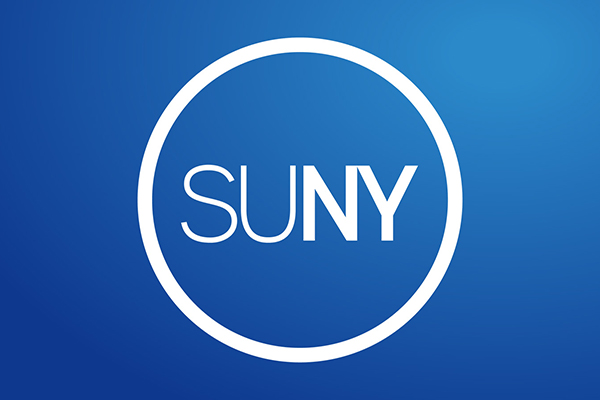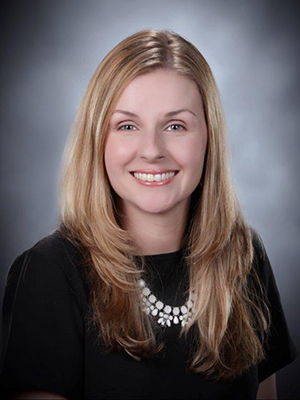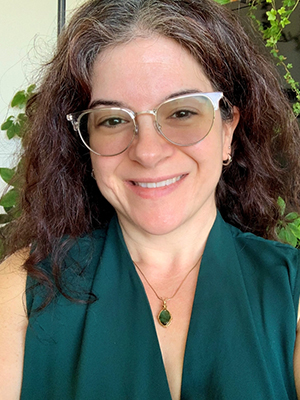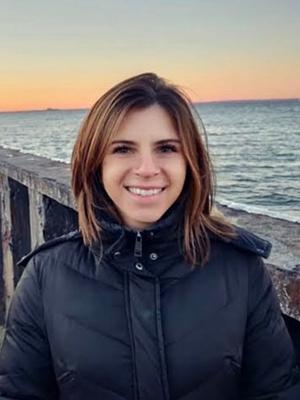
09/09/2025
Four SUNY Cortland faculty members have earned competitive fellowships from the State University of New York to further academic work related to timely social topics.
The SUNY Academic Affairs Fellows Programs provides support across four key areas that align with the SUNY General Education Framework and systemwide priorities: artificial intelligence (AI) for public good; civil discourse, civic education and engagement; diversity, equity, inclusion and social justice (DEISJ); and sustainability.
SUNY Cortland saw a faculty member selected for all four fellowship groups, which invited up to 10 fellows out of more than 200 applicants for each cohort. Their award includes a $10,000 stipend to support the integration of their topic areas into coursework as well as consultation for SUNY’s general education efforts.
The university’s representatives are:
-
Karen Davis, associate professor of psychology, who was selected as a Civil Discourse and Civic Education and Engagement Fellow;
-
Lauren deLaubell, librarian in Memorial Library, who was selected as an AI for Public Good Fellow;
-
Jeremy Jiménez, associate professor of foundations and social advocacy, who was selected as a Sustainability Faculty Fellow; and
-
Danica Savonick, associate professor of English, who was selected as a Diversity, Equity, Inclusion and Social Justice (DEISJ) Fellow.
“Having our faculty selected across all four fellowship categories speaks to the quality of teaching, scholarship and service that exists at SUNY Cortland,” said Ann McClellan, the university’s provost and vice president for academic affairs. “This is wonderful recognition for our campus and the four dedicated scholars who will help lead these important systemwide conversations. I applaud their talents and their willingness to engage with important topics of our times.”
More information is included below about each of the university’s recently named fellows.
Karen Davis

As a licensed clinical psychologist and forensic evaluator, Davis has worked closely with individuals involved in the criminal justice system and victims of violence. Her work in outpatient and inpatient settings highlighted the importance of professional civic engagement and discourse and continues to be central to her teaching and scholarship.
At SUNY Cortland, Davis has developed the forensic psychology minor and four courses focused on the intersection of psychology and the law. Civic discourse is integral to her teaching as students focus on current issues such as criminal justice reform, human trafficking and working with marginalized groups involved in the criminal justice system.
Davis’s commitment to creating learning opportunities that strengthen media literacy and highlight the importance of ethical and professional practice has extended to her work supervising student research assistants. These projects have examined how the media frames mass shootings and sexual abuse allegations as well as popular media portrayal of psychopathy and intimate partner violence.
Lauren deLaubell

DeLaubell is the information literacy and instruction coordinator in Memorial Library. She was awarded the SUNY Chancellor’s Award for Excellence in Librarianship in 2018. She received her M.S. in information science from the University at Albany, and her research interests include information literacy instruction, artificial intelligence, assessment and gamification. Most recently, deLaubell designed the game Research Wizards, an open access card game for teaching students about source evaluation.
Jeremy Jiménez
Jiménez, a faculty member in the Foundations and Social Advocacy Department in SUNY Cortland’s School of Education, earned his doctorate in international and comparative education from Stanford University in 2017. He previously taught high school social studies for more than a decade across the world, including Norway, Venezuela and the United States.
Jiménez’s course topics explore race, class, gender and international issues in education and how they intersect with environmental justice. His current research focuses on how to prepare educators and schools for the transition toward life after fossil fuels, with special reverence for Indigenous conceptions of land stewardship.
He has visited 183 countries across the globe and enjoys local hiking, biking and skiing as well as gardening and topics related to biodiversity.
Danica Savonick

Savonick’s research and teaching focus on multicultural and African American literature, women writers, feminist pedagogy and digital humanities. She is the author of Open Admissions: The Poetics and Pedagogy of Toni Cade Bambara, June Jordan, Audre Lorde and Adrienne Rich in the Era of Free College (Duke University Press, 2024). Her current project focuses on the radical writers and artists who taught at the experimental Livingston College, part of Rutgers University, in the 1970s. Her research has appeared in MELUS, American Literature, Modern Fiction Studies, Radical Teacher, Keywords for Digital Pedagogy in the Humanities, Digital Humanities Quarterly and Hybrid Pedagogy as well as Public Books and The Chronicle of Higher Education. She is an editor of The Journal of Interactive Technology and Pedagogy and Reviews in DH.